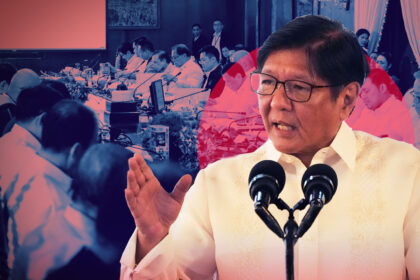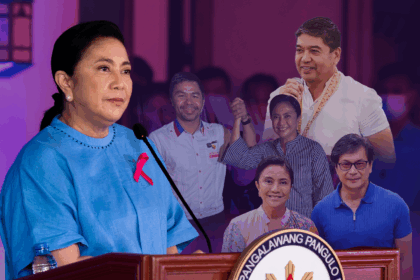In today’s streaming era, a new Senate bill proposes to regulate Filipino films and series, affecting not only content oversight but also creative control and industry freedom.
On June 2, 2025, the Senate approved Senate Bill (SB) No. 2805, a proposal to modernize the 1985 charter of the Movie and Television Review and Classification Board (MTRCB), extending its reach to include online streaming platforms and curated digital content. However, the bill’s real impact lies in its move to give the MTRCB regulatory power over streaming platforms—raising concerns about censorship, creative control, and the future of digital content in the Philippines.
What’s in the Bill?
SB No. 2805 aims to bring platforms like Netflix, YouTube, Vivamax, and iWantTFC under the MTRCB’s watchful eye, along with other Online Curated Content Providers (OCCs) and Subscription Video on Demand (SVODs). The bill’s main goal is to establish better cooperation mechanisms between regulators and digital platforms to safeguard especially vulnerable groups, like children from harmful content.
The bill does not require pre-screening or mandatory content review before viewers access content. Instead, it promotes “safety by design” principles, platform registration, and feedback systems to promptly address valid concerns, particularly regarding abuse or exploitation.
The MTRCB expressed support for the proposed amendments to its mandate, saying it will enforce whatever is approved by lawmakers.
“We respectfully defer to the wisdom of our lawmakers on the matter. Whatever is ultimately approved by Congress and the President, we will implement it,” the Board said.
Amid concerns over censorship, it clarified that no prior review of streaming content will be required.
MTRCB said the goal is to help address harmful content, especially involving minors.
“It is our collective hope that any amendment should be firmly anchored on the principle that the protection of children is a top priority,” said Chairperson Lala Sotto-Antonio.
When regulation turns into restriction
The bill’s passage has sparked some unease among filmmakers and creatives. Groups like the Directors’ Guild of the Philippines warn it could lead to subjective regulation, especially of politically sensitive or provocative films.
The University of the Philippines Film Institute goes further, calling for the MTRCB’s abolition, viewing it as a relic of an era when artistic voices were muted during Martial Law.
Real-world examples, like the banned films ‘Alipato at Muog’ and ‘Dear Satan’ fuel these fears—both were rated X by the MTRCB for allegedly violating Presidential Decree No. 1986, which prohibits content that undermines government authority or portrays morally questionable themes.
Senator Risa Hontiveros, the lone dissenting vote against SB 2805, raised strong concerns over its implications.
She emphasized that the regulation of digital services and online content should be guided by legislation specifically designed for that purpose. She also questioned the use of vague terms like “contrary to good morals” or content that may “undermine faith in government,” cautioning that such language is prone to misuse.
“The voice and artistry of the Filipino people, whether offline or online, are powers that belong to the public and are protected by the Constitution. Any regulation of these must not be excessive,” she said.
Aktor PH, the guild of Filipino actors chaired by Dingdong Dantes, has voiced strong opposition to SB 2805, which seeks to expand the powers of the MTRCB. The group warns that the measure threatens freedom of expression, artistic integrity, and livelihood in the entertainment industry.
“Any legislation that impacts freedom of expression must be shaped with those who live and work in this space,” the group said.
Aktor PH advocates for a self-regulating industry, where reform comes from within, not imposed from above.
In April 2022, more than 98 percent of Filipino internet users between the ages of 16 and 64 subscribed to video streaming services, according to data from Statista. For many Filipinos—especially younger audiences—these platforms offer a glimpse into their culture, everyday challenges, and unique humor.
Creativity in Trial
Senator Robin Padilla, a former actor and now a lawmaker, has defended the bill, emphasizing its intention to uphold social responsibility in the digital age.
“Hindi natin sinasakal ang malikhaing damdamin. Ngunit sa harap ng malawak at bukas na digital space, hindi rin po natin maaaring pabayaan ang pananagutan sa bawat nilalaman,” Padilla said during a Senate hearing.
Padilla’s statement highlights a growing concern, that in an era where content is widely accessible and virtually unfiltered, the youth are increasingly exposed to materials that may shape their values and beliefs.
According to him, the bill is not about silencing creativity but ensuring that accountability exists in the production and distribution of content.
SB 2805 is more than a legislative update—it is a crossroads for Philippine cinema and digital content regulation. Will it build a safer online world without clipping creative wings? Or will it tighten the lens on stories Filipinos deserve to see?
As the House gears up to debate, artists, legal minds, digital platforms, and audiences await the next act because cinema is not just about what’s on screen—it’s about what’s allowed on screen.








